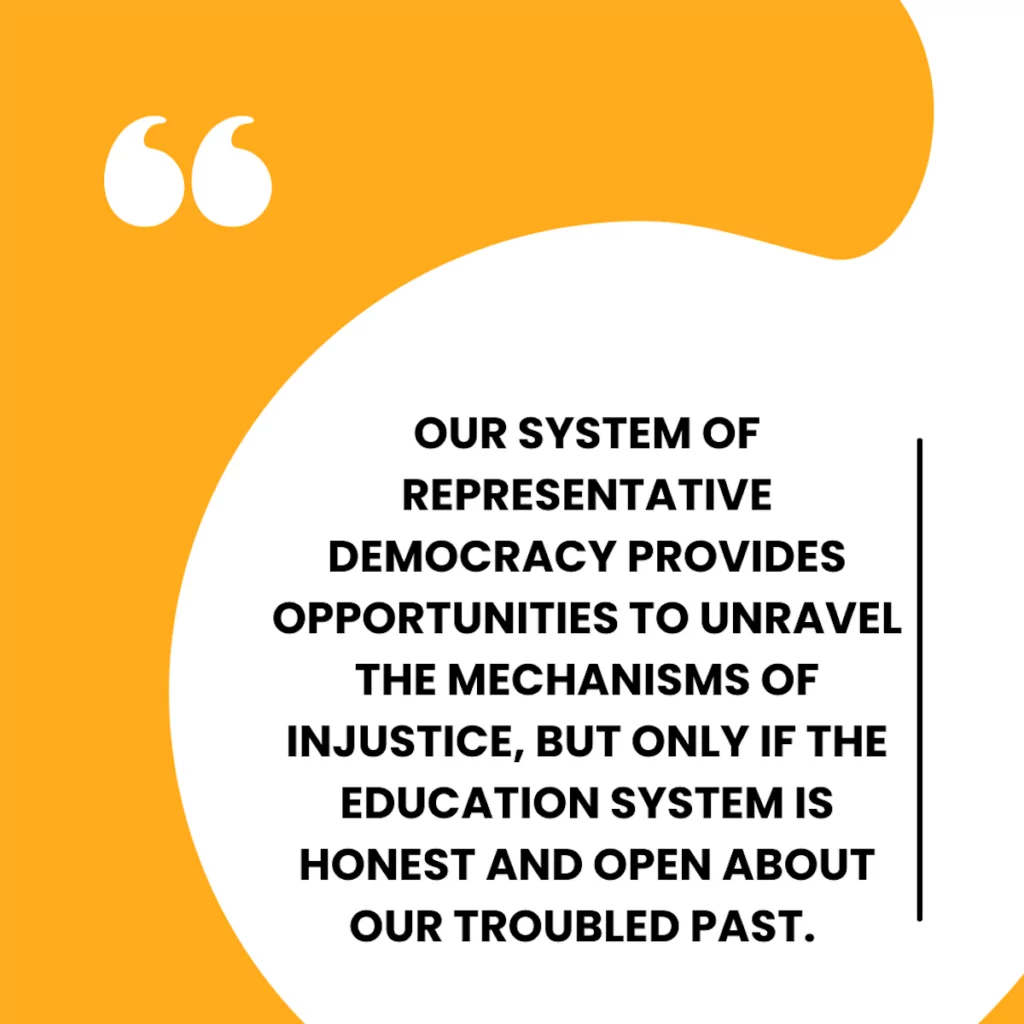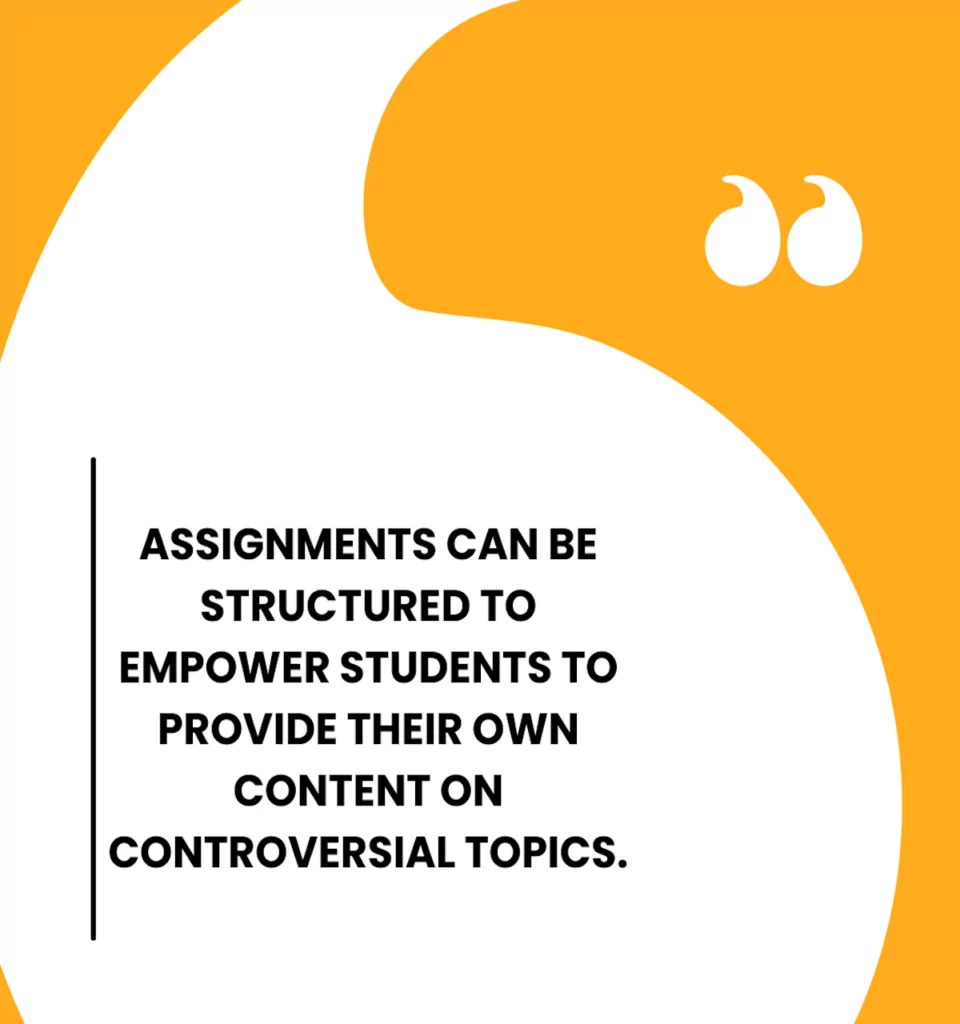Against a backdrop of acrimonious debate in the political realm over diversity, equity, and inclusion (DEI), educators face pressures as they search for ways to engage students using culturally responsive practices. As a society, we want to encourage free inquiry in the classroom, yet find ourselves uncomfortable with some of the current challenges to traditional ways of thinking and teaching. This conundrum reflects the tensions, both political and pedagogical, that can trap students and professors in a no-win situation.

✅ AI Essay Writer ✅ AI Detector ✅ Plagchecker ✅ Paraphraser
✅ Summarizer ✅ Citation Generator
Key Takeaways
– Competing ideological frameworks illustrate the porous boundaries between politics and education.
– Accusations of divisiveness arise when students relate their lived experiences or are prevented from doing so.
– Professors acknowledge and value diversity, but also feel pressure to avoid controversial topics.
DEI prioritizes a continuing acknowledgment and examination of historical patterns of exclusion based on race, gender, sexuality, ethnicity, social class, religion, and physical abilities. Multiple examples of exclusion are widely known, including the Jim Crow era, textbooks that represent only the dominant culture, and laws regulating bathroom access and athletic eligibility. We teach about these inequities in many academic contexts, but controversies tend to zero in on the political implications of our educational perspectives.
Politics and Education Affect Each Other

Philosophers of education like John Dewey envisioned a style of democracy nourished by a system of education that encourages social contact among diverse groups of people. Dewey’s vision raises the question of what the content of education in a democratic society should be. Debates over issues like critical race theory implicate education and politics simultaneously, with differing assumptions fueling competing perspectives.
Opposition to DEI tends to emanate from the ideological right wing, with its emphasis on traditional methods, values, and social arrangements. In this view, education ought to instill established cultural values while imparting an agreed-upon knowledge base. When educators venture outside these boundaries, especially by challenging the established narratives of the dominant culture, traditionalists question their motives. Critically evaluating the historical and continuing oppression of marginalized groups, for example, appears to traditionalists as more politically threatening than educationally useful.
Proponents of DEI also view education and politics as codependent. Culturally sensitive pedagogy requires honest acknowledgment and authentic discussion of historical oppressions. For DEI advocates, the purpose of education is ultimately to make life better for everyone. Our system of representative democracy provides opportunities to unravel the mechanisms of injustice, but only if the education system is honest and open about our troubled past. In other words, connecting the plight of marginalized groups to systemic causes is not only educationally useful but politically imperative.
Unity and Divisiveness
A somewhat perverse twist in the discourse on DEI has each side accusing the other of divisiveness. On the one hand, opponents of DEI stand accused of racist motives, even though alternative explanations for their opposition are plausible. One expert on public policy, for example, points out the lack of evidence that DEI training achieves its goals. DEI advocates face the same accusation of divisiveness due to a perception that focusing on past injustices is motivated by a leftist political agenda, even though a legitimate case can be made that the legacy of exclusionary practices continues to disadvantage minorities.
In the classroom, however, opening the wounds of injustice and exposing them to light can promote unity, and need not be divisive. A central question is whether classroom discussion of historical subjugation does nothing more than inflame animosities. For DEI advocates, it is logically impossible to move beyond these injustices without acknowledging and addressing them. For DEI detractors, the continual dredging up of a painful past cannot possibly function to unify a diverse society.
But these arguments are abstract and for the most part irrelevant to what goes on in a college classroom. Professors are unifiers at heart, striving to foster the critical thinking that is needed for students to arrive at a common purpose despite our history of injustice.
Teaching With One Hand Tied Behind Your Back

In a political environment that puts professors on the spot, demanding of them a set of measurable outcomes while restricting what may be discussed, students might wonder how we approach this dilemma. One promising mantra places student input at the center of the learning experience.
Assignments can be structured to empower students to provide their own content on controversial topics. A reflection paper assignment, for example, requires students to produce relevant content and personal (i.e., diverse) perspectives, which are shared with the class for discussion purposes. Simulations involving role play can also reveal student insights that touch on issues related to equity and inclusion.
The larger point is that students are often more adept than professors at pinpointing the corrosive effects of historical cultural domination. Thankfully, theories of education encourage faculty to empower students to create relevant content, thus alleviating professors’ legitimate concerns that their lectures on prohibited topics might be used against them.
Conclusion
A recent New York Times opinion column laments the intellectual environment of college campuses in the U.S., describing them as “brutalizing ideological war zones” and “hostile places to be.” This often-heard criticism stems from irreconcilable expectations about higher education. And yes, a placid classroom experience can definitely sound appealing during moments of social upheaval.
But when political forces align to seize control of educational content and discussion, any perceived dampening of hostilities is illusory. After all, it is intellectual growth that makes education worth pursuing. A university experience that merely reinforces the dominant culture does not facilitate intellectual development, and an environment bereft of meaningful critique and debate is not truly educational.
Helpful Resources:
- 1 California Community Colleges. (2022, June 6). DEI in curriculum: Model principles and practices. Sacramento, CA: Academic Senate for California Community Colleges.
- 2 Hoyte, H. C. (2017). John Dewey and citizen politics: How democracy can survive artificial intelligence and the credo of efficiency, Education and Culture 33(2), 13-47.
- 3 Paluck, B. L. (2022, December 12). Does diversity training work? We don’t know—and here’s why, Washington Post.
- 4 Monson, D. (2023, June 8). Perspective: How to promote diversity without creating division, Deseret News.
- 5 Brooks, D. (2023, November 16). Universities are failing at inclusion, New York Times.
Follow us on Reddit for more insights and updates.





Comments (0)
Welcome to A*Help comments!
We’re all about debate and discussion at A*Help.
We value the diverse opinions of users, so you may find points of view that you don’t agree with. And that’s cool. However, there are certain things we’re not OK with: attempts to manipulate our data in any way, for example, or the posting of discriminative, offensive, hateful, or disparaging material.